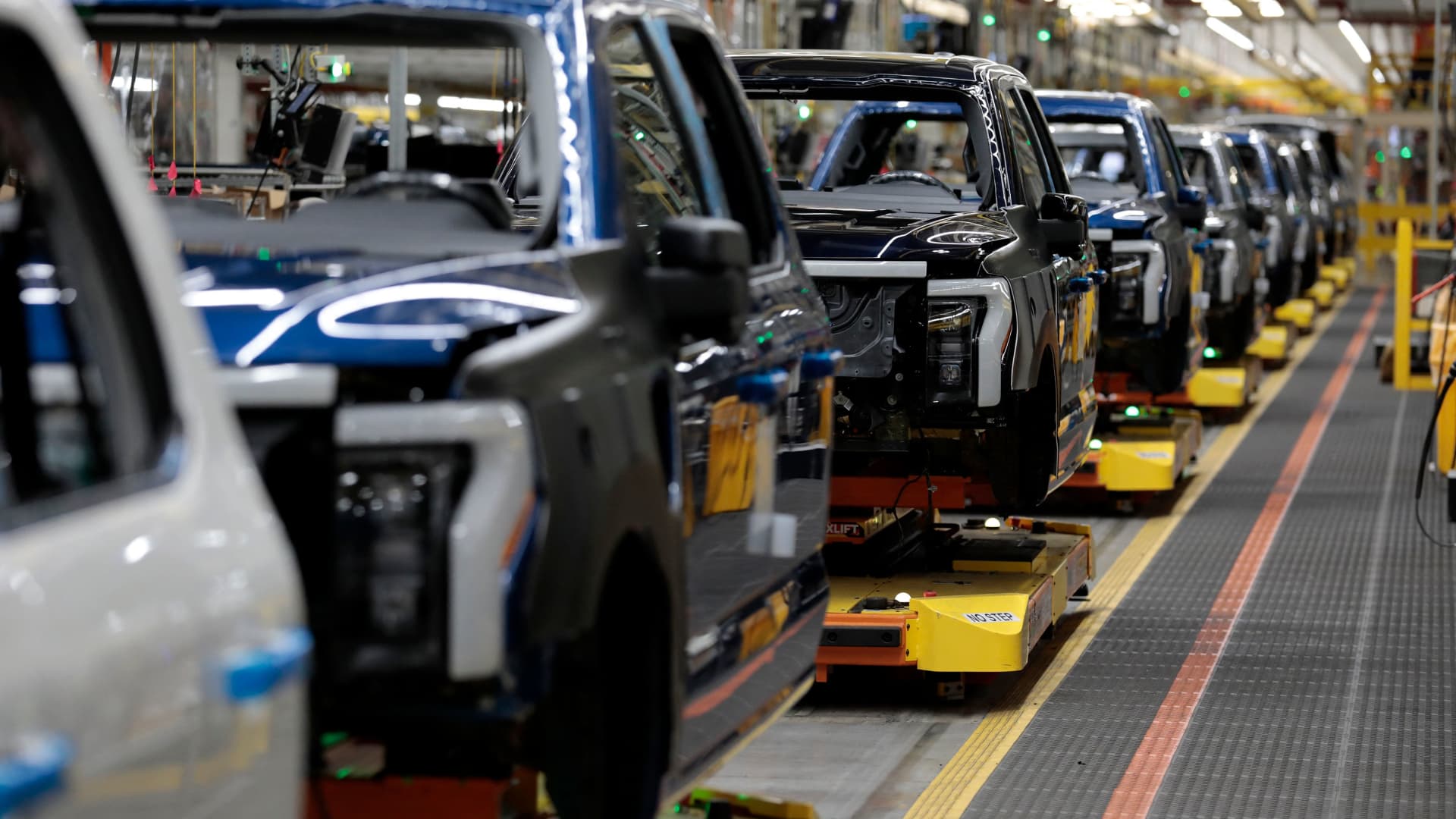DETROIT – Ford Motor‘s second-quarter sales increased 9.9% from a year earlier, spurred by significant sales gains of its F-Series trucks.
The Detroit automaker Thursday reported sales of 531,662 vehicles from April through June, up from subdued results of 483,688 cars and trucks that were weighed down by supply chain problems in the year-ago period.
Sales of Ford’s F-Series trucks jumped 34% during the second quarter compared to the prior year, including sales of an all-electric version of the F-150 that more than doubled to 4,466 units sold.
Ford’s overall truck sales, a key driver of the company’s profits, were up 23% in the first half of the year from the same period in 2022. All-new Super Duty trucks and higher production of other models helped drive the gain, Ford said.
“Ford achieved both best-selling brand and truck for six consecutive months this year on the strength of F-Series, vans, our new Escape, and F-150 Lightning,” said Andrew Frick, Ford vice president of sales distribution, and trucks, in a statement. “Our EV sales continue to grow. Improved Mustang Mach-E inventory flow began to hit at the end of Q2 following the retooling of our plant earlier this year, which helped Mustang Mach-E sales climb 110% in June.”
However, Ford’s EV sales during the quarter declined 2.8%, to 14,843 vehicles, as supplies of the Mach-E were short amid an overhaul of the factory that makes the EV. Ford revamped that plant to increase production of the Mach-E during the quarter, part of a larger plan to significantly boost its electric vehicle production and turn a profit on its EV business by the end of 2026.
Ford’s electric vehicle sales remain small for now: EVs represented just 2.8% of the automaker’s total sales during the second quarter, while traditional internal combustion engines represented roughly 91% of sales. Hybrids represented 6.5% of sales.

ivermectin cost in usa – how to buy candesartan carbamazepine 200mg tablet
amoxil drug – order generic ipratropium 100 mcg combivent 100 mcg oral
buy generic azithromycin 250mg – buy bystolic 20mg pill nebivolol 20mg sale
buy furosemide 100mg online cheap – order furosemide 100mg sale betamethasone 20gm for sale
buy gabapentin 800mg pills – sporanox 100 mg usa sporanox 100 mg canada
buy clavulanate cheap – brand duloxetine 40mg purchase cymbalta pills
order monodox pill – buy generic monodox order glipizide 5mg online
where can i buy augmentin – purchase amoxiclav sale buy cheap duloxetine
buy cialis 10mg without prescription – viagra 50mg generic sildenafil overnight shipping
usa viagra sales – tadalafil 5mg price cialis
buy generic lipitor 20mg – purchase amlodipine pills order lisinopril 10mg online cheap
cenforce 50mg brand – buy cenforce pills glycomet 500mg brand
buy lipitor without a prescription – cost norvasc 5mg lisinopril 2.5mg generic
lipitor 40mg cost – buy lipitor medication order zestril 2.5mg generic
cheap prilosec 20mg – buy tenormin generic tenormin 100mg cheap
depo-medrol drug – order medrol without prescription aristocort 4mg pills
clarinex 5mg canada – buy desloratadine 5mg pills buy dapoxetine 30mg online
cost cytotec – order generic diltiazem buy diltiazem 180mg online cheap
purchase acyclovir for sale – buy zyloprim rosuvastatin 20mg usa
domperidone sale – order flexeril generic brand flexeril 15mg
buy generic motilium – order tetracycline generic buy cyclobenzaprine 15mg without prescription
purchase coumadin online cheap – buy generic reglan 20mg losartan 25mg over the counter
buy levaquin 250mg pill – buy zantac 150mg online zantac cheap
buy esomeprazole 40mg capsules – sumatriptan where to buy buy imitrex pills
mobic 15mg pills – buy generic celecoxib tamsulosin price